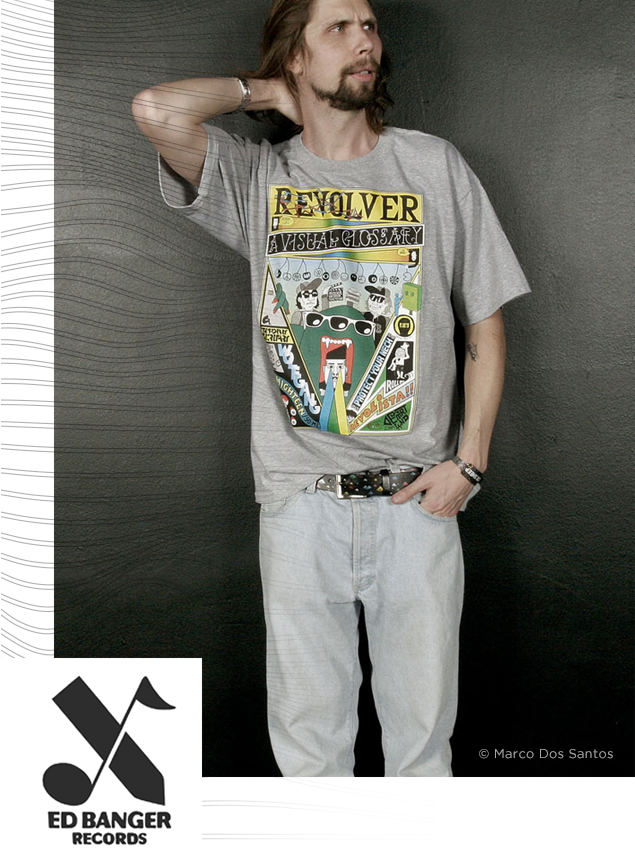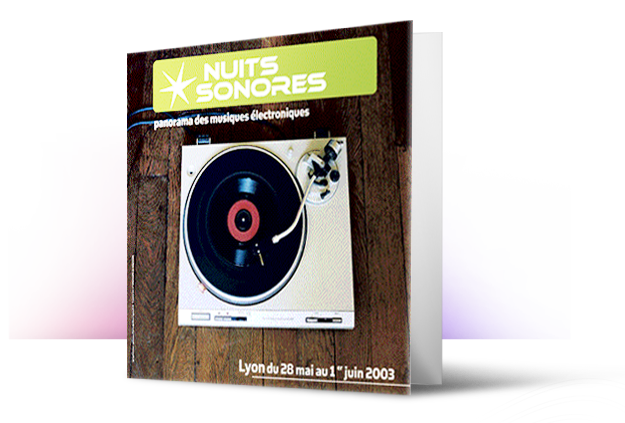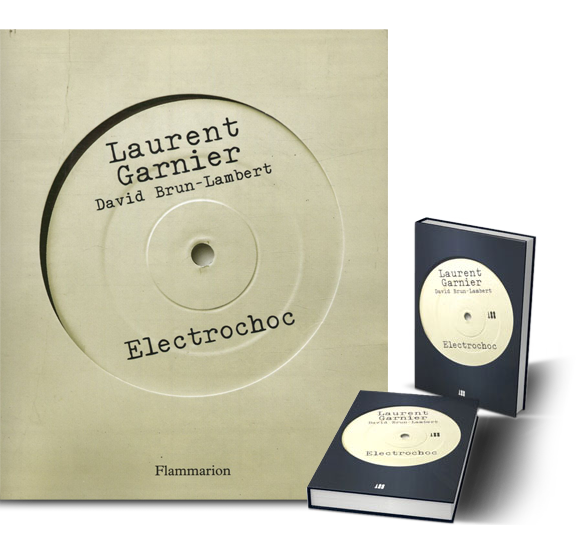


Pedro Winter
In the early 2000s, the tide was starting to turn. Both the media and the public were becoming much more interested in the so-called “return of rock” led by groups like The Stokes than French Touch music. However, even as many independent record companies from the heyday of the French electronic scene were closing down, Daft Punk’s right-hand man decided to launch his own label. Pedro Winter knew the ins and outs of the music industry and party scene. He founded Ed Banger Records with the goal of producing the latest generation of French electro artists. New underground musicians had started showing up with a sound that was far from the “filtered disco” of their predecessors. These artists, which were quickly dubbed “French Touch 2.0,” defied convention, mixing electronic music with rock, disco, and hip-hop. Their music was more abrasive and even aggressive. Ed Banger Records became the standard bearer for the new style. Pedro Winter discovered the duo Justice and its disco and electro-rock sound, singled out the funky pop of the Parisian Breakbot, released the first busy-sounding Turbine tracks of SebastiAn, and helped DJ Mehdi transition to electro music. Thirteen years later, Ed Banger Records is still active. The label continues to promote the latest generation of artists, including Boston Bun and Borussia.
Considered today one of France’s most important electronic festivals, Nuits Sonores in Lyon started small in the spring of 2003. The city’s electro scene had been plotting its revenge since the party Polaris was cancelled in 1996. Lyon had long been seen as a symbol of government-led repression of electronic music. That didn’t stop the collective Arty Farty, founded in 1999 by electronic music and contemporary art fans with help from the DJ and producer Agoria, from trying to organize a new electronic music festival. They were aided in their effort by Lyon’s new mayor, Gérard Collomb, who had been working on modernizing the city’s image since his election in 2001.

Flyer from the first edition of Nuits Sonores
While the first year didn’t feature any major headliners, it did include the best the international electronic scene had to offer such as Derrick May, Felix Da Housecat, and Roni Size. Fifteen thousand people were in attendance. Over time, interest in the festival and the number of spectators only went up. Today, Nuits Sonores has become a must-see event in the spring, hosting 80,000 fans both night and day (during outdoor DJ sets and group performances) throughout Lyon. In 2001, the event also started hosting European Lab, a series of conferences on the future of culture in Europe. It has also been held in the Moroccan city of Tangier since 2013.
French DJ Martin Solveig made a name for himself with “Madan” at a time when he was still unknown to the general public. This remix of a song by the Malian musician Salif Keita blended African singing with funky rhythms. Solveig sold over 100,000 copies in France and got an extra publicity boost during the 2005 World Cup, which featured “Zidane il va marquer,” a parody done by French presenter Cauet that used the melody from “Madan.”
A duo that was soon to become one of the most noteworthy groups in French electro released its first hit in June. At a time when Ed Banger Records was just getting off the ground, Pedro Winter discovered a remix of “Never Be Alone” by the English group Simian done by two unknown Parisians that he had met during a friendly get-together around the raclette grill. He immediately signed Justice and released their remix of “Never Be Alone,” which went on to become one of the defining songs of electro in the 2000s.
In 2003, the Teknival des Vieilles Charrues, typically held at the same time as the larger Vieilles Charrues Music Festival, became a focal point for all the tensions surrounding electronic music. Backed by the Mariani amendment to the Law of Everyday Security, which had regulated free parties since 2002, the police confiscated all the festival’s equipment. Clashes broke out. One attendee lost his hand to a grenade explosion, and twenty-eight other people were injured, including two who suffered serious injuries.
Laurent Garnier, a pioneer of the French electronic scene, published Électrochoc in collaboration with the journalist David Brun-Lambert. In the book, which was welcomed by critics, the two authors discuss the history of a musical genre that Garnier saw emerge and change. It was as much the autobiography of one of France’s most popular DJs as it was a history of the electronic scene throughout the world, including London, Berlin, Detroit, and Chicago. A new edition was published ten year later with chapters about the period between 2003 and 2013.

The history of the label Institubes, just like that of Ed Banger, is emblematic of the second generation of French electro artists in the 2000s. Created by a group of friends from a variety of different groups and collectives (Teki Latex and Para One from TTC, Jérôme Tacteel, Jean-René Étienne, etc.), Institubes was based on a simple idea—instead of sticking with just one style, mix them together. Para One’s “Beat Down,” the label’s first EP, set the stage from day one. The first track was rap, the second electro, and the third was a mix of the two. There were no limitations placed on the music as long as you could dance to it.
The label’s artists, which included Surkin, Para One, Tacteel, Château Marmont, and Das Glow, produced club music based on electro, funk, turbine, rap, and even Chanson Française (the collective released an album from the singer Alizée in 2009). Just like Ed Banger Records, with whom Institubes was closely aligned, the label separated itself from 90s-era French Touch, choosing instead to inject new momentum into the French electronic scene in the 2000s. During parties, Institubes would switch from a rap classic to an electronic track with a disco song right after—an approach that was unheard of at the time. It was a hit. Institubes was first successful in France, then abroad, at which point the group started traveling throughout Europe and the United States, even receiving an invitation to mix at Coachella, one of the largest music festivals in the world. Unfortunately, all goods things come to an end. Though Institubes shut down in 2011, it did spawn new labels, including Marble Records and Sound Pellegrino.